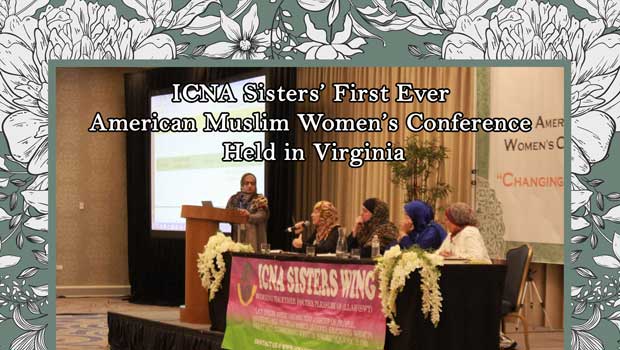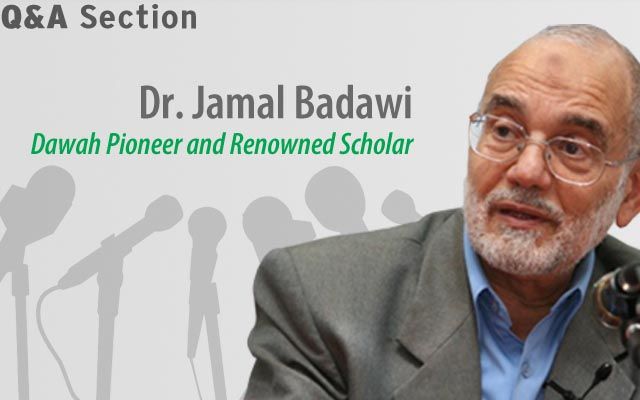There seems to be an impression among many that it is impossible to unite the Muslim world. However, unity does not imply: 1) unanimous agreement at all levels of government and society, and 2) unity does not imply conformity of views.
Firstly, unity is not conformity. There are certain aspects of Islam that unite people across lines of jurisprudence, and even across theological lines (e.g., Sunni and Shia), and one clear-cut example of that is the profound issue of Palestine. Unity does not imply conformity of views; in fact, coalition-building itself, socio-political charters, like that of the Madinah Charter, did not imply that Muslims, Jews, and others held identical views. Prophet Muhammad (s) established a charter that governed all of Madinah, and it included non-Muslims, each with rights and responsibilities as citizens of the city. Unity is a political, societal, and structural tool, with a goal in mind. It’s critical to challenge the misconception that social cohesion requires conformity. The 1400-year-old Islamic tradition, especially within the vast community of 1.8 billion Sunni Muslims, is a testament to the strength found in diversity. The problem with equating unity and conformity is that some people, unfortunately, see disagreement as a cause and an evidence of conflict and enmity.
Allah SWT’s words form the bedrock of unity in Islam: “And hold firmly to the rope of Allah all together and do not become divided” (3:103). This divine directive calls for unity that transcends worldly resources or constructs like wealth, political power, nation-states, citizenship, ethnicity, language, or any other distinction. In Islam, unity is a powerful, spiritual bond that brings together hearts and minds in a diverse yet harmonious collective, striving towards a common goal.
 In 7th century Arabia, an era dominated by the chains of slavery, the arrogance of the elites, and the social hierarchy that marginalized the weak, Allah SWT delivered a revolutionary message: “O mankind, indeed We have created you from male and female and made you peoples and tribes that you may know one another. Indeed, the most noble of you in the sight of Allah is the most righteous of you. Indeed, Allah is Knowing and Acquainted” (49:13). This profound verse shattered the entrenched class systems of Arabia, igniting a powerful transformation. It empowered Muslims to rise above societal norms and aspire for God-consciousness and piety, placing these virtues above all else.
In 7th century Arabia, an era dominated by the chains of slavery, the arrogance of the elites, and the social hierarchy that marginalized the weak, Allah SWT delivered a revolutionary message: “O mankind, indeed We have created you from male and female and made you peoples and tribes that you may know one another. Indeed, the most noble of you in the sight of Allah is the most righteous of you. Indeed, Allah is Knowing and Acquainted” (49:13). This profound verse shattered the entrenched class systems of Arabia, igniting a powerful transformation. It empowered Muslims to rise above societal norms and aspire for God-consciousness and piety, placing these virtues above all else.
Moreover, this verse stands as a formidable beacon of diversity in Islam. It commands Muslims to acknowledge, respect, and celebrate the rich tapestry of differences in language, skin color, ethnicity, and all worldly distinctions. It’s a call to unity in diversity, where the true measure of nobility is not in one’s lineage or status but in their righteousness and love and fear of God. This is a clarion call for a world where equality and understanding must triumph over division and prejudice, echoing through the ages as a timeless reminder of the true essence of humanity.
When the innocent in Palestine endure suffering, it sends waves of anguish across the globe to Muslims in New Zealand. The displacement of Muslims in Sudan resonates as deep sorrow in the hearts of their brethren in Pakistan. The trials faced by the Rohingya, Uighur, Yemeni, Syrian, and suffering Muslims anywhere around the globe, ripple through the ummah, a shared agony that unites us all. This collective empathy is akin to a person trying to sleep while besieged by a relentless fever or a throbbing headache, finding no solace in rest. Prophet Muhammad (s) profoundly stated: “The believers in their mutual kindness, compassion, and sympathy are just like one body. When any part of the body suffers, the whole body feels pain” (Sahih Muslim). We are that singular, interconnected body – transcending borders, transcending birthplaces. Our unity is not defined by geography but by the shared pulse of our passionate belief in Islam, feeling each other’s pain as if it were our own, standing in solidarity against the tide of suffering — unwavering and resolute.
The Muslims who fled persecution from the pagan elites in Makkah and migrated to Madinah were known as the Muhajiroon (those who emigrate). The Muslims of Madinah, who welcomed and supported them upon their arrival, were called the Ansar (supporters). Upon their arrival in Madinah, Prophet Muhammad (s) paired each individual from the Muhajiroon with a member of the Ansar. This pairing aimed to facilitate assimilation, provide financial support, if possible, and extend a warm welcome to the families of the Muhajiroon in Madinah. Among the Ansar, individuals like Sa’d bin Rabi’ exhibited extraordinary generosity— he offered half of his wealth to his Muhajiroon companion, Abdulrahman bin ‘Awf. Abdulrahman, an intelligent businessman, politely declined the offer but requested to be shown to the marketplace so he could start building his livelihood from scratch.
Whether Family or Society, Differing Opinions Are Expected
Muslims are consistently instructed in the Qur’an and authentic hadith to maintain familial bonds, exercise patience and forgiveness, even towards those who may not reciprocate kindness, and to embody a higher standard of character. This ethos aims to foster family unity. However, this guidance should not be misconstrued as a tolerance for injustice or as overlooking urgent situations that necessitate intervention to prevent abuse and harm. It primarily addresses everyday interactions with relatives and family members who may be rude, irritating, argumentative, or unkind, despite one’s own kindness and exemplary character. Prophet Muhammad (s) stressed the importance of sustaining family ties, even when another family member may sever them. This does not mean, however, that family members are expected to have unanimous views on all matters. Should differences of opinion within a family lead to enmity and conflict? Of course not.

Just as families are encouraged to embrace diverse viewpoints while working together and avoiding division, so too is the Muslim ummah expected to operate in a similar spirit of unity amidst diversity.
There is unity of belief in the foundational principles of Islam such as the five pillars, the primary pillar of tawheed (oneness of God) serving as a perfect example. Here there is a unity of belief and understanding that does not admit any differences or disagreement. However, in the details, priorities, or approaches to practical matters — issues of fiqh such as the diverse opinions on voluntary aspects of prayer or wudu’ — there can be differences or variance in interpretation of sources. That a diversity of opinions exists is evidenced by the different schools of fiqh. This diversity of opinion is a kind of disagreement known as ikhtilaaf al-tanawwu’ (disagreement of variance, or variant views) and we are invited to embrace the plurality of opinions within the framework of Islamic orthodoxy while following scholars seeking to clarify the strong evidence of one opinion over others.
Another type of disagreement is tadaad (ikhtilaaf tadaad), which represents differences that are contradictory, beyond the bounds of varying interpretations. Not all differing opinions stem from interpretation of the sources of Islamic legislation. Some opinions are false, deviating from proper Islamic methodology and resulting in ideas or innovations that fall outside the scope of orthodox Islam. This can lead to confusion among those who assume that all varying or conflicting views are valid. That is not the case.
However, embracing the plurality of opinions within the framework of Islamic orthodoxy is not only permissible but also encouraged in the interest of maintaining social harmony among Muslims, and it is the role of scholars and advanced students of knowledge to discuss the deeper issues of differences among these opinions and to pursue what is strongest based on their methodologies. Whichever school of jurisprudence one follows (among Sunni Muslims — Hanafi, Maliki, Shafi’i, and Hanbali), or for those who pursue Islamic knowledge while remaining outside of these schools of jurisprudence, the caution is to avoid divisions and disputes among the masses of Muslims. Thus, each individual and/or group is to recognize and respect the validity of the other fiqh interpretations that are based on Qur’an and sunnah and orthodox Islamic methodology.
Consistent Efforts to Unite
It is not the responsibility of laypeople or the general masses to engage in debates and disputes about the principles of fiqh, as this is not their area of expertise. Such actions may only serve to legitimize divisions and disputes. These academic discussions are best left to qualified scholars who are actively engaged in addressing the needs of diverse Muslim communities in today’s globalized world.

Conversely, as mentioned above, some Muslims mistakenly believe that all differing opinions are valid, so in the name of liberalism, inclusivity, and tolerance, they open the floodgates of all possible views on what Islam is or isn’t. People are legally free to define themselves as they wish, but we do not believe that Islam is open to postmodern hijacking or secular reformulation. College students, in particular, must exercise caution in their understanding of inclusivity. Islam is a big umbrella insofar as it invites any and all people to learn about it, to investigate its teachings, and to join its ranks, regardless of their current religious belief, political orientation, or personal identity. But Islam does not allow its tenets to be modified to accommodate concepts or practices that are contrary to its teachings. It can be, especially for young adult Muslims, a thin line to walk between being welcoming, kind, and respectful to individuals with other beliefs and ideologies and, at the same time, remaining faithful in thought, word, and deed to orthodox Islam.
Certain topics have the power to unite, and shared hardships, whether through physical and emotional experience or through witnessing and empathy, can bring hearts closer. The ummah is in need of many things, and the issue of Palestine consistently demonstrates our potential for unity. What is required is wisdom, sincerity, and consistent efforts to unite strategically, in planning and organization, throughout the year, for the sake of Allah SWT.





